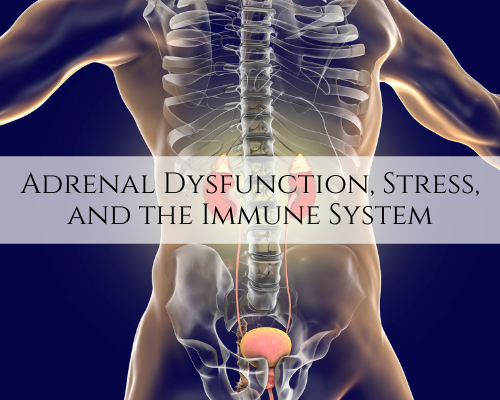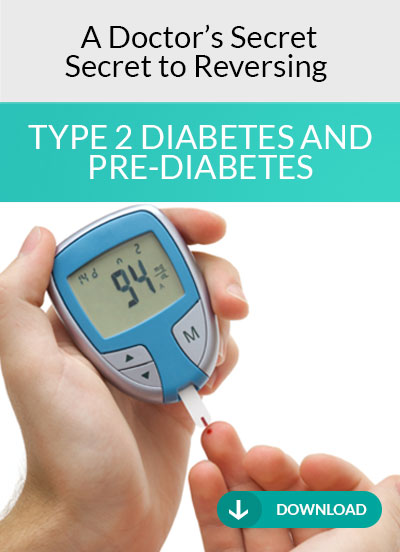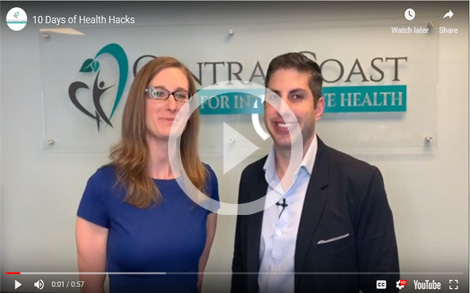Almost everyone has experienced stress at some point in their lives. During the holidays is a very common time, putting in extra hours at work, studying for an important test, or taking care of children or an elderly family member. But did you know there is “good” stress too? Like when you go on vacation, get married, buy a new home, or when you exercise. Whether it’s good or bad stress, the hypothalamic-pituitary-adrenal axis (HPA axis) carefully orchestrates a chain of events so that the adrenal glands in your body release the “stress hormone,” cortisol. The hypothalamus is located in the brain, the pituitary gland is at the base of it, and the adrenal glands are on top of the kidneys.
However, chronic stress can overstimulate the HPA axis until it breaks down, also known as “adrenal fatigue” or “adrenal exhaustion.” Stress can affect our adrenal system function as well as our immune system and cardiovascular health. Let’s go deeper into this relationship and help you learn to cope with stress in a better way, for better overall health.
Symptoms of “Adrenal Fatigue” or HPA-Axis Dysfunction
- Brain fog
- Craving salty foods
- Difficulty concentrating
- Excessive fatigue and exhaustion
- Feeling overwhelmed by or unable to cope with stress
- Non-refreshing sleep
- Poor digestion
What is Stress?
There isn’t one answer to this. Stress can come in many different forms and too much of it can cause issues with your health. You may not enjoy how stress makes you feel emotionally or physically, but really it is just your body’s natural mechanism to react and then adapt to your environment. We are often exposed to stress every day.
Stress can be a good thing! It helps you avoid danger or meet an important deadline. It helps keep you motivated and alert. Exercise is stressful, too. It helps you adapt to a more challenging workout by breaking down your old tissues and building new muscles. This is because it is short-term stress, or acute stress. We are hardwired for short, occasional bursts of stress. Think of running from an angry lion to save your life. But chronic stress is different. Exercise too much? Your body may not be able to handle it and your “good stress” becomes “bad stress.”
Chronic stress lasts a lot longer, this can occur if you experience trouble in your marriage or get fired from work. It can happen if you are having financial problems or chronic illness. Chronic stress can occur any time stress lasts for weeks or months. This is the kind of stress that can cause health problems. Many people say our modern lifestyle in and of itself is enough to foster chronic stress.
Your Body and Stress
Have you ever heard of the “fight or flight response?” This is the body’s automatic physiological reaction to something that we think is frightening or stressful. When our sympathetic nervous system triggers acute stress, it is preparing our body to fight or flee – or run away from the stressful event. Our body then releases stress hormones so our brain is more alert, our pulse quickens, and our muscles tense up. Our adrenal glands secrete this hormone, called cortisol.
Cortisol is naturally released in our body in the morning when we wake up, also known as the cortisol awakening response. During this natural rhythm, our body decreases the amount of cortisol released throughout the day and as we go to sleep, cortisol is at its lowest. Also, our adrenal medulla, part of the gland, excretes other “neurohormones” called norepinephrine and epinephrine to cope with stress. Norepinephrine (previously known as noradrenaline) and epinephrine (known as adrenaline) are secreted by glands and communicate between nerve cells, giving them the unique distinction as both hormones and neurotransmitters. To really understand stress, we need to look at our overall central stress response system, the hypothalamic-pituitary-adrenal (HPA) axis.
- We experience a psychological or physical stressor
- The HPA axis then signals hormone release from the hypothalamus (CRF)
- When CRF binds to the pituitary gland, the pituitary releases ACTH
- ACTH binds to our adrenal cortex and signals the release of cortisol
- If we secrete our epinephrine and norepinephrine chemicals during this time – the HPA axis repeats the initial release of hormones – resulting in more cortisol
This system is perfectly designed for short bursts of infrequent stress. As soon as the stressor is gone, usually within minutes or a few hours, the whole HPA axis goes back to a resting state. The stress response is turned off and the stress hormones CRF, ACTH, and cortisol go back to baseline levels. However, if stress is chronic, the stress hormones keep surging, the stress response is “on” constantly, and the HPA axis gets more and more resistant to the hormone signals, until it eventually wears down and malfunctions .
Stress is pro-inflammatory. However, cortisol naturally has anti-inflammatory properties. That means your acute stress response will be neutral or non-inflammatory. However, if your body secretes too much cortisol chronically – the anti-inflammatory effect decreases, and inflammation in the body will occur.
Chronic stress can cause symptoms such as:
- Aches and pains
- Diarrhea and constipation
- Dizziness
- Fatigue
- Grinding teeth
- Headaches
- Lack of focus
- Sexual issues
- Shaking or trembling
- Sleep issues
- Upset stomach
- Weight loss or gain
How Stress Affects Your Immune System
Your adrenal glands react to stress by secreting hormones to help your body respond to chronic stress. What is the connection between this and your immune system?
Your body experiences stress including:
- Physical stress due to pain or injury
- Chemical stress due to hormones or food reaction
- Mental or emotional stress due to trauma
Acute stress that releases cortisol can boost your immune system and limit inflammation.
Chronic stress that releases too much cortisol will cause inflammation. It decreases your body’s lymphocytes (white blood cells), which can make you susceptible to a virus, such as the common cold. Chronic stress and the inflammation that comes with it can lead to autoimmune diseases, inflammatory bowel disease, and even heart disease.
Adrenal dysfunction occurs when the body experiences these kinds of stress for prolonged periods and the body increasingly becomes less able to adapt to it.
How Stress Triggers Autoimmunity
Research has shown that stress is significantly associated with an increased risk of subsequent autoimmune disease. This stress triggers the immune system and the autoimmune dysfunction remains active. For example, some autoimmune disorders are more commonly found in people with chronic stress: lupus, arthritis, fibromyalgia, psoriasis, Hashimoto’s, and rheumatoid arthritis.
The only way to balance this is to identify and remove the stress that is acting as a trigger. Once the stressor is gone, we can help the immune system and HPA axis heal and come to a calm, resting state. Turning off the stress response helps us bring autoimmune conditions into remission. It is also important to remember that our body’s systems work together in a way that is intelligent and resilient – to keep us alive and safe. There is a good reason that the immune system goes haywire in the face of chronic stress. The trick is to turn off the chronic stress. If you think of the body as a rubber band, it can only be stressed for a while before it will be unable to “bounce back” as before. When the rubber band is over-stretched, that’s when symptoms start.
The only way to regain balance is to support your body so it can heal and repair itself – rather than cover up symptoms or shut down the immune system. Stress management is a crucial part of this healing in functional medicine – to find the root cause of disease and address it.
Stress Reduction and Coping Techniques
Remember that we all have stressors in our life that we may not have control over, whether that is other people in our life or certain life situations. Letting go of things we can’t change can be an important first step to healing. Luckily, we DO have a lot of control over most of the things that cause stress in our bodies! We must learn to cope with the stress in a way that does not cause an imbalance to our HPA axis (adrenals), hormones, or our immune system. This is especially important for those with an autoimmune disease that is triggered by stress.
Practice meditation
Anyone can do it. Meditation is an excellent way to reduce stress, easy to learn, and brings fast results. Even as little as a couple of minutes can help you reduce stress and reach a calmer state. You can do it anywhere you are and it is super easy to use as a coping skill whenever stress arises.
Try the 4-7-8 breathing technique
Known as conscious breathing, 4-7-8 Breath, or Relaxing Breath is something you can do at any time. Here is a video tutorial on this breathing exercise by Dr. Andrew Weil. Breathing is done in a rotation of inhaling and exhaling while counting. The ratio 4:7:8 is the crucial part of the technique which can be practiced anywhere by anyone, to calm down and release stress.
Exercise to tolerance
Physical activity can help with sleep, improve mood, and block pain with hormones like endorphins. Remember, exercise can mean “good stress,” but don’t overdo it or you will increase your “bad stress” levels. Exercise such as running, dancing, swimming, cycling, and aerobics have been shown to reduce both stress and anxiety.
Physical movement of the body alone can help get the body out of fight or flight mode. There’s a saying that, “zebras don’t get ulcers” because they adapt to stress by turning off stress once the threat (a hungry lion) is gone. One thing that helps them do this is physical movement. Have you ever watched a nature documentary where an animal is being chased, and as soon as it is safe again, it literally shakes it off, and resumes eating? That physical process of “shaking it off” tells the body it’s safe again and helps the body get back into a parasympathetic “rest and digest” mode.
So, move. It doesn’t matter how or what, just physically move your body every day.
Participate in relaxing activities or hobbies
Hobbies are important for self-care, they can relieve stress, help you feel calmer while you are involved with them, and they can give you a feeling of accomplishment. Some of the most relaxing hobbies include:
- Gardening
- Photography
- Listening to music
- Scrapbooking or planner planning
- Watching pet fish
- Working on a puzzle
- Coloring or painting
- Knitting
- Writing or journaling
- Yoga
- Dance
Socialize or connect with another person
Humans are social beings; we thrive on maintaining a connection to others. Social support is an important part of our mental well-being and is important for stress reduction. Not only does socialization reduce the release of cortisol, but our body releases another hormone called oxytocin, which lowers our anxiety levels while stimulating our parasympathetic nervous system’s calming response. Maintaining social connection is even more important in 2021, due to the distancing precautions that are in place for COVID-19. Without adequate social connection, mental illness increases in both adults and children.
Improve Immune Function and Overall Health by Reducing Stress
Our modern world is full of constant stressors, but our bodies were designed to handle only short bursts of occasional stress. Don’t let chronic stress damage your body and send you down the road of autoimmunity. While there are some things you cannot control, most of the major causes of stress are under your control. Build a daily habit to relax and calm down so that your HPA axis, adrenals, and stress neurohormones settle down to a resting state. You might just find that you are healthier and happier, too!
Board Certified in Integrative Medicine
Certified Functional Medicine Practitioner
Institute for Functional Medicine Certified Practitioner






